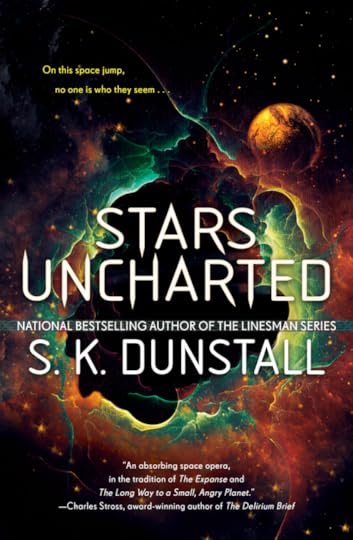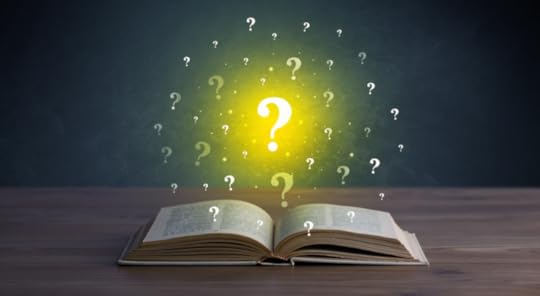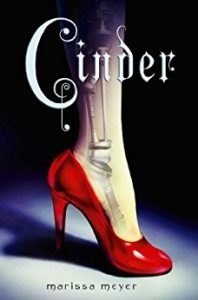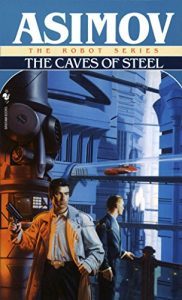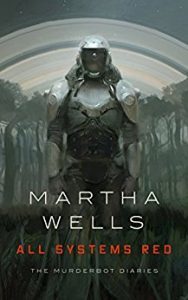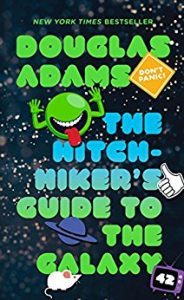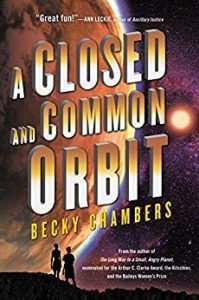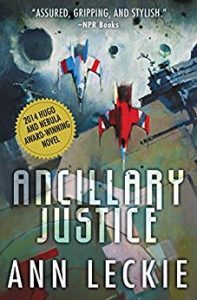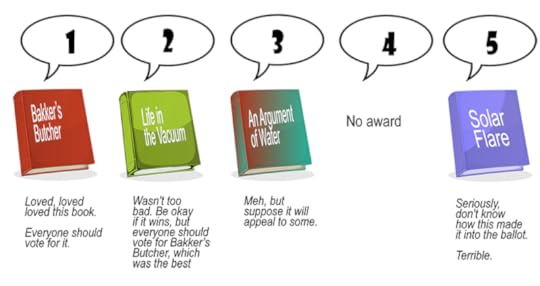S.K. Dunstall's Blog, page 20
July 17, 2018
Read chapter one of Stars Uncharted
Only four weeks until Stars Uncharted is published. Eek. It feels like only yesterday that we tentatively sent off three sample novels to our agent to say, “Which one do you think we should work with?”
Her answer, “Well, that was easy.”
And that’s how Stars Uncharted came about. If you’re interested, you can read the first chapter now on our website.
July 14, 2018
A ragtag band of explorers …
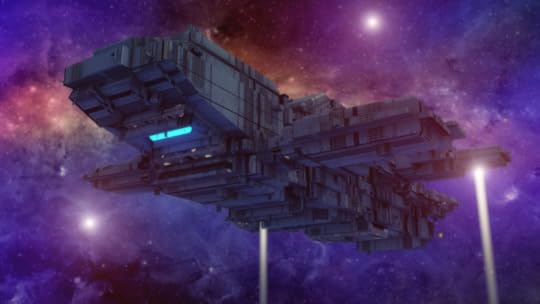
My kind of spaceship. Not too many windows to space. Windows make a ship more vulnerable, and a lot more expensive to heat.
This is the sort of ship a ragtag band of explorers like Hammond Roystan and his crew might use. Image: Miguel Aguirre
Status today: Ow.
I’ve had a lazy week, reading lots of books. I’m a fast reader, I tend to open a book and read through to the end, stopping only for work, dinner and bed. Maybe bed, if the book’s too good I’ll read through the night to finish. Bad me. (The only day I ever took off work for reading happened because I stayed up till 6:00am reading Robin Hobb’s Fool’s Fate. I thought I’d snatch an hour’s sleep. Ahem. By the time I woke up it was way, way past getting-to-work time.)
Anyway, I read three books yesterday, straight through, stopping only for lunch and dinner. (I’m not going to name them, because the first book was so good I went and bought the second two, and by the end of book two I was going, ‘Huh’, and book three I just skimmed. In my skimming I thought I missed something important because the end I felt as the author had left a major plot-hole. I spent a couple of hours rereading book three, trying to work out if they had, or if in my skimming I couldn’t find where they covered it. I still couldn’t find it.)
I sat in the same place all day. I’m getting old. My body can’t take that sort of punishment any more. Today I am sore.
There’s one month to go for the release of Stars Uncharted. Release date is Tuesday, 14 August.
It’s funny how when you write a book you think it’s so unique, but it turns out that it’s not.
We’ve learned that a ‘ragtag’ crew is a thing. There are lots of books about people who join up as a team (a little bit of the found family we talked about last week), but I wasn’t aware that there was a word to describe them. It doesn’t feel that common in Australia—maybe it is, maybe we never noticed it—but since it was used in the blurb on Stars Uncharted we’ve noticed it everywhere.
July 7, 2018
What are some things you like in stories?
A couple of days ago, on Twitter, Isabel Yap (@visyap) started a thread that asked,
“What are some things you like in stories (not tropes, necessarily), that you are always down for?”
I read all the comments, agree with a lot of them, and came up with my own list of things I particularly enjoy.
Deep platonic friendships
Friends who are there for each other. People enjoy each other’s company, can be honest to each other, tell them their thoughts and hopes and dreams. And of course, in the stories we like to read and write, can also trust that their friend will save them if they get into trouble, and knows that they will do likewise if their friend gets into trouble.
Found families
My family life was practically idyllic, so far as I can tell. Loved Mum and Dad, still get on well with my siblings. I have no idea why I love found families so much, but I do. This is where a group of disparate people—usually lonely, often without family of their own—come together in a family group. In fact, right now we’re toying with a story just like that. An alien, a human down on his luck, and a kid whose own father was violent, so he ran away from home.
People have mentioned Stars Uncharted is a found family, too.
Happy endings
When I finish a book I like to finish feeling satisfied. That usually means a happy ending.
Bad guys who aren’t pure evil
I hate it when the bad guys are purely evil, with no redeeming features at all. The thugs are just thugs, the evil company is evil all the way through, and so on.
It’s easy to make people and organisations purely bad. The enemy in Stars Uncharted is a lot more simplistic than the enemies in the Linesman books.
Banter
Love the quick back and forth repartee between characters. It makes a story fun, shows that they’re friends (usually), and demonstrates character. When we were younger, Ivan Southall’s Simon Black series was our favorite duo who talked back to each other. (They’re kids’ SF books, love them still, but they haven’t aged well, except the first one, which wasn’t science fictional at all, but about World War II.)
I have, however, read books—which shall remain unnamed—where the banter didn’t work, so it’s not as easy to write as it looks.
Strong sentiment, lots of emotion
Laugh out loud moments, moments that make you cry, no matter whether you’re in public or not, even those lovely little bits of romance that thrill (not the sex, just the pieces where you go, ‘ooh’ and go back and reread all the time).
Happy endings
The world is depressing enough sometimes, particularly if you listen to the news, nowadays. Of course there are good bits, but it’s nice to know when you escape to a book that you’re going to feel good at the end of it.
Strong women
I don’t need kick-ass women all the time, but I really don’t want women who have no control over their own lives.
Then again, I don’t like books where men have no control over their own lives, either, and I’ve read a few of them lately. There’s one author I love, but I refuse to read any more of her books because she’s done that to her main character (male) in two series now.
No, characters have to have some control over what they do and how they live their lives.
Science fiction and fantasy with gender and race equality
Which leads on to the next thing, which drives me crazy, particularly in fantasy. Books where the author has built an amazing world, plus an awesome magic system, and then they base a woman’s role on a quasi-medieval western Europe role, and a non-white person’s role on the same. Women are chattels, owned by their husbands or fathers, colored people are slaves, or semi-human.
You’ve built a whole world, and you stop right there. It doesn’t have to be that way.
Non-perfect characters
Given that we wrote about Ean, who is a classic ‘special person’, you can see that we have no objection to a story about a chosen one, or a (technical or strategic) genius, or any of the—can I call them—tropes that are used in science fiction and fantasy. No, the real issue is when they’re perfect people with it.
They have to have some failings. Because no one is perfect, and perfect people are difficult to like.
Stories with big ideas
Anne Leckie’s Ancillary Justice with a ship, the ancillaries and a single person all as one entity. Vernor Vinge—how to murder someone by leaving them to die in real time in Marooned in Real Time, or how not to pay call centre staff, in The Cookie Monster. Big ideas, science fiction that makes you think.
Fantasy, too. You can’t go past the bridge builders in Brandon Sanderson’s The Way of the Kings, or even the magic in Robin Hobb’s Soldier Son series. (Miserable books, those, but the last story ended on a high note. I reread the end quite a few times.)
Not-so-alpha males
I like to know how my male characters feel, and what they think, not just what they do. In many stories, that makes them less-than-alpha. So be it. They’re the best.
And let’s face it, in real life, a true alpha male is not generally a really nice person. They tend to be arrogant, take-charge, think they know everything and refuse to listen to anyone else.
Strong family relationships
I know I said earlier that I like found families, but I do like books where people who are part of a blood family actually get on with each other, and love each other, and have contact with each other. So many characters in fantasy and science fiction seem to have no families at all.
Children’s books are often the same. Parents and siblings are totally out of the picture. Yet for some reason, when we get to young adult, the family is around all the time, causing the main character grief. (And isn’t it nice when you find a young-adult novel where the hero or heroine has a good relationship with both parent?)
Fun in a story
I love stories with a dash of humor. They don’t have to be laugh-out-loud funny, just make me smile.
So that’s my list. What’s yours?
(p.s. Today’s blog is a total mix of US and UK spelling, not eve one or the other. Sorry. I just went with what worked for me, today.)
June 30, 2018
The same old themes crop up again and again — even when you don’t plan on it
I find that many of our favorite writers have themes, or story ideas, which they carry across from series to series. I don’t know if themes are conscious or not.
For example, the female protagonists written by one author are always in formerly abusive relationships.
Our stories? Well, we didn’t think they were alike, but then we thought about Alliance, where people are trying to kidnap Ean, and Confluence, where—even though it happens late in the book—Yu’s people sort of try to kidnap Ean too.
Or even with Stars Uncharted, which most of you haven’t read yet, where hopefully we’re not giving too much away by saying that one of our protagonists is on the run and that some of our antagonists want her to do something for them. It gets even worse in Stars Beyond, the book we’ve just handed in to the editor, where they really are after her. (A bit cryptic, but I’m trying not to give plotlines away.)
Hmm. Pot calling kettle black? Definitely.
At the moment we’re tossing up over which stories to send to our agent next.
There’s Acquard, of course, but series books aren’t flavour-of-the-month right now and while Acquard’s not an Ean Lambert story, everyone’s favorite(?) other linesman, Jordan Rossi, does get gig, so that may be a hard sell. (There’s no guarantee she’ll like Acquard anyway, but we’ll see). We’re considering what else we can send her as well.
She wants space opera. So do we. And we do write ahead a little. Not much, but enough that we know whether it’s a story we can write or not. Which means we need to have written ten or twenty thousand words, minimum, and know how the story is going to finish. Enough to send samples and a synopsis.
“What about Arrax?” I suggest. “It needs a major rewrite, but it’ll be a good space opera, and the science behind the story is neat.”
Except … as we propose it, Arrax starts off with someone being captured, and fairly early in the book someone else gets kidnapped.
Sounds a bit familiar, doesn’t it.
Not only that, the basic story is about some people going to a planet to look for some MacGuffin. Well, it’s not really a MacGuffin, but people will call it that. A chase—in space and on planet—looking for some kind of treasure, fighting bad guys to get their prize, and so on. Lots of fun.
Sound familiar?
Maybe not, but let me reproduce the Goodreads blurb for Stars Uncharted. (My emphasis on the last paragraph.)
Three people who are not who they claim to be:
Nika Rik Terri, body modder extraordinaire, has devoted her life to redesigning people’s bodies right down to the molecular level. Give her a living body and a genemod machine, and she will turn out a work of art.
Josune Arriola is crew on the famous explorer ship the Hassim, whose memory banks contain records of unexplored worlds worth a fortune. But Josune and the rest of the crew are united in their single-minded pursuit of the most famous lost planet of all.
Hammond Roystan, the captain of the rival explorer ship, The Road, has many secrets. Some believe one of them is the key to finding the lost world.
Josune’s captain sends her to infiltrate Roystan’s ship, promising to follow. But when the Hassim exits nullspace close to Roystan’s ship, it’s out of control, the crew are dead, and unknown Company operatives are trying to take over. Narrowly escaping and wounded, Roystan and Josune come to Nika for treatment–and with problems of her own, she flees with them after the next Company attack.
Now they’re in a race to find the lost world…and stay alive long enough to claim the biggest prize in the galaxy.
Now does it sound familiar?
Yes, well. Time for a rethink. Let’s bring out another book we have on the back-burner. Fergus Burns, with the best bad guy (girl) we’ve written to date. Alis Mack Carroll.
Meantime, back to the drawing board to rethink why we have so much kidnapping and chasing people in our own stories.
June 23, 2018
How do you write ‘good’ characters versus ‘bad’ characters?
One thing writers try to do is ‘show’ a character by his or her actions. That is, rather than say,
Bob Jenkins was a bad man.
You show it by
Bob Jenkins pulled into the petrol station one midnight, just after Granny Stevens had closed up, and demanded she unlock one of the bowsers so he could fill up. Granny had refused, so he’d punched her in the face, knocked her to the ground, and driven off. Granny had spent three months in hospital, recovering.
It’s not so common now, but simple way authors were taught to show a protagonist’s character was to show how he treated animals.
Does he kick the dog, or does he pat it? Does he, like Jack Holloway in John Scalzi’s Fuzzy Nation, allow his dog to detonate explosives. (This works better than it sounds here, Jack’s relationship with his dog saves him, in my opinion.) Or does he, like Riggs in Lethal Weapon, rescue a dog that’s being tortured by some low-lifes?
That last may or may not be true, but I’m sure I’ve seen the start of Lethal Weapon where some people are sitting around a fire in a drum, and they’re torturing a dog. Riggs is uber crazy, out of his mind with grief and depression, probably blind drunk, and he goes in and tears these people apart. (Not literally, but he roughs them up.) It sets the scene for the whole movie. People I’ve spoken to can’t remember the scene, so I don’t know if I imagined it or not. But to me, it’s part of the Lethal Weapon canon, and it shows Riggs’ character perfectly. He’ll go in to prevent injustice, but he’s badass with it.
Like I say, they don’t use animals as much to show character now, although it’s still around.
Another common technique was to show how the character treated children.
Nowadays, good guys can be a lot more ambiguous, but they have to have morals. Morals that we agree with.
Even if they’re half-way bad, our ‘good guy’ has a good reason for doing something. Something that we as a reader think is a good thing. For example, our protagonist may be determined to destroy a pharmaceutical company, and does unpleasant things to achieve it, but it always turns out that the company he (or she) is trying to destroy is worse. For example, they covered up the test results of a drug they sell, and even though they know the drug causes people to die screaming in agony they still sell it, because it makes them money. Enough money to buy and sell governments.
I love bad guys who aren’t truly bad, just doing what they feel is right, and that’s different to what the protagonist wants. They’re the best type of ‘bad’ characters to read about.
Even so, my gut feel is that with the world in the turmoil it is today, many writers will start making their antagonists a little more obviously bad in the future. It’s a way of coping.
June 17, 2018
An exercise in editing—from first draft to second
Please, bear with us. The first example is bad. It’s meant to be. The second isn’t much better. This is designed to show the drafting process. Two drafts is never enough. At least, not for us.
Email, me to Sherylyn: What do you think? Unlikeable?
Eliud Frank was building a stark arrangement of human bones when Alaric finally got to his office.
“You’re late.”
He’d got the message at lunch time. It had taken three hours—two public buses and a maglev ride—to get here. “No one gave me a time.”
Eliud placed a bone carefully at cross angles to another, stepped back to view the result.
“It’s off-centre,” Alaric said.
“When I want your opinion, I’ll ask for it.”
Alaric shrugged, and watched in silence as his boss’s boss’s boss finished the arrangement. The pieces had the creamy-white porous brittleness of real bone. He thought they might be real.
Eliud placed the final piece. “What do you think?”
It was still off-centre, but Alaric shrugged. “Can’t say I’d like a bunch of bones in my office.”
“You don’t have an office.”
“Rub it in.” Not that he wanted an office, and he shouldn’t be talking to his boss’s boss’s boss like this anyway, given it was the first time they’d met, but there was something about the man that felt as if Eliud was deliberately provoking him. Alaric was contrary enough to poke right back.
Where was Tina, anyway? You didn’t meet with superiors this high up the tree without your own boss in attendance.
She’d probably gone back to their branch office, disgusted with him for being so late. If that was the case, she should have offered him a lift.
“Survive or fail,” his grandmother had told him, “But don’t think that I’m going to interfere for you.”
So far, he’d been just treading water.
Eliud cracked a smile. His teeth were the same colour as the bones. “Hurts a bit, does it.”
No, it didn’t. What hurt more was being plucked out of a life he’d enjoyed and forced to take a shite job like this because his grandmother had ordered it.
“Konrad Deens,” Eliud said.
That little shite. “What about him? I hear he took over his uncle’s business. Been quite successful.”
“Somewhat of an understatement. While you’ve been saving the worlds and making music, he’s become the de-facto ruler of three worlds.”
That sounded like Deens. He’d always been ambitious.
“You went to school with him.”
“He was a bully. We clashed.”
“Nevertheless, you went to school with him.”
Note by the question I ask in the email I’m pretty sure Sherylyn won’t like him. Sherylyn has final say on characters. If she doesn’t like them they’re either out, or we work on them until she does.
Email reply, Sherylyn to me: Very confusing.
Another email reply, Sherylyn to me: And maybe not so likeable
So we discuss this little piece over dinner.
“I like the bones,” Sherylyn says. “Otherwise, there’s too many people, I have no idea what’s going on. I don’t even like the swearing. Who’s Tina? What’s his grandmother got to do with it?”
Okay. It needs a lot of work. Sometimes Sherylyn does this. But not this time. Partly because it’s only the first page, and partly because she doesn’t have any feel for Alaric yet.
What does she like?
The bones.
So, our next draft becomes:
Eliud Frank was building a stark arrangement of human bones when Alaric finally arrived at Eliud’s office.
“You’re late.” Eliud placed a bone carefully at cross angles to another, stepped back to view the result.
“It’s off-centre,” came out before Alaric could stop it.
“When I want your opinion, I’ll ask for it.”
Alaric watched in silence as his boss’s boss’s boss finished the arrangement. The pieces had the creamy-white porous brittleness of real bone. He thought they might be real. He didn’t know why he’d been called here, and that fact that his own boss—Tina—wasn’t here, worried him. You didn’t see someone two ranks removed on a social call.
Eliud placed the final piece. “What do you think?”
It was still off-centre, but Alaric shrugged. “Can’t say I’d like a bunch of bones in my office.”
“Konrad Deens,” Eliud said.
“I hear he took over his uncle’s business. Been quite successful.”
“Somewhat of an understatement. While you’ve been saving the worlds and getting your face in the tabloids, he’s become the de-facto ruler of three worlds.”
That sounded like Deens. He’d always been ambitious.
“You went to school with him.”
“He was a bully. We clashed.”
“Nevertheless, you went to school with him.”
Email, me to Sherylyn: What do you think?
June 9, 2018
What bot is that – answers to last week’s quiz
Last week,I gave you six bots and asked if you knew which books they were from.
Bot 1
Once upon a time there was a cyborg. That’s me. You might think my life is a fairy tale. I can tell you it’s not. I live in New Beijing with my stepmother—who hates me—and my two stepsisters. The stepsister I adore is dying of the plague.
Who is it?
Cinder, from Marissa Meyer’s Lunar Chronicles series. More specifically, the first book, which was called Cinder. This is a retelling of fairy stories as science fiction. Including an evil queen (the ruler of the moon). Book one was Cinderella’s story. She had an artificial foot.
In the Lunar Chronicles anyone with artificial appendages (like the foot) is a cyborg, and considered sub-human.
Bot 2
We’re here to solve a murder. The New York detective I’ve been partnered with doesn’t trust Spacers. Or robots.
He’s from overcrowded Earth, where they hate robots because Earth people believe robots take jobs humans could do.
Who is it?
This was R. Daneel Olivaw from Isaac Asimov’s Caves of Steel. It’s probably the first robot book I ever read, and Elijah Bailey and Daneel Olivaw were probably my two favourite Asimov characters ever.
Bot 3
“I could have become a mass murderer after I hacked my governor module, but then I realized I could access the combined feed of entertainment channels carried on the company satellites. It had been well over 35,000 hours or so since then, with still not much murdering, but probably, I don’t know, a little under 35,000 hours of movies, serials, books, plays, and music consumed. As a heartless killing machine, I was a terrible failure.”
This one is a direct quote, which I will attribute next week, but I love it so much I’m quoting it verbatim. This is also a really great start to a novel.
Who is it?
Everyone’s favorite murderbot. Ranks up there with bonus bot (below) as one of my two favorite artificial intelligences of all time.
The SecUnit from Martha Wells’ Murderbot Diaries. Book one, All Systems Red, won a Nebula for best novella this year, and it’s a Hugo finalist as well. I, personally, am voting for this on the hugos. I love Murderbot.
Bot 4
I am 50,000 times more intelligent than a human, and have a “brain the size of a planet” which I seldom get a chance to use. I was built originally as one of the (many) failed prototypes of Sirius Cybernetics Corporation’s GPP (Genuine People Personalities) technology. I’m bored. Maybe a little depressed. People have called me paranoid, and manically depressed. I’m just stoic, patient even.
“The first ten million years were the worst. And the second ten million. They were the worst, too. The third ten million I didn’t enjoy at all. After that, I went into a bit of a decline.”
“Do you want me to sit in a corner and rust, or just fall apart where I’m standing?”
Who is it?
Marvin the paranoid android from Douglas Adams’ The Hitch-hiker’s Guide to the Galaxy.
Alan Rickman played Marvin in the 2005 movie of the book. We didn’t see it, for some reason, but I can imagine Alan playing him. He’d do it so well.
Bot 5
I used to be a ship AI, but things went wrong and I had to do a hard reboot. Now I’m in a body. That takes a bit of getting used to. It feels cramped, and tiny. I can’t remember what happened before.
Who is it?
I thought some people might have chosen Breq (bonus bot) for this one, but they didn’t. This bot is Lovelace, aka Sidra, from Becky Chambers’ A Closed and Common Orbit.
For a bonus point
I used to be a ship. I controlled thousands of human bodies. My ship was destroyed. All that’s left of me is the one human body I am in now. This body sings. Badly.
Who is it?
My other all-time favourite AI. Breq, from Anne Leckie’s Ancillary Justice.
June 2, 2018
What bot is that?
Our book is done. This draft, anyway. Due date was the 1 June.
We delivered, although of course we’d love to have another round of editing right now. Books are like that. Every time you look at your writing you see something else you want to change.
I have to clean my desk ready for the next one. It’s becoming a tradition—clean your desk ready for the next book. I just don’t understand how a desk can get so messy, but it does.
We have ideas for the next story, but nothing planned. We’ll take it easy for a couple of days, and then talk to our agent about what we should do next.
Meanwhile, it’s time for a quiz.
It was initially going to be a quiz totally about humanoid robots, but in the end I’ve stretched it out to full robots, AI, cyborgs, augmented humans and everything between. So it’s not really just bots in the sense that most science fiction people know them. (There’s a very big hint here, people.)
How many can you get?
Bot 1
Once upon a time there was a cyborg. That’s me. You might think my life is a fairy tale. I can tell you it’s not. I live in New Beijing with my stepmother, who hates me, and my two stepsisters. The stepsister I adore is dying of the plague.
Bot 2
We’re here to solve a murder. The New York detective I’ve been partnered with doesn’t trust Spacers. Or robots.
He’s from overcrowded Earth, where they hate robots because Earth people believe robots take jobs humans could do.
Bot 3
“I could have become a mass murderer after I hacked my governor module, but then I realized I could access the combined feed of entertainment channels carried on the company satellites. It had been well over 35,000 hours or so since then, with still not much murdering, but probably, I don’t know, a little under 35,000 hours of movies, serials, books, plays, and music consumed. As a heartless killing machine, I was a terrible failure.”
This one is a direct quote, which I will attribute next week, but I love it so much I’m quoting it verbatim. This is also a really great start to a novel.
Bot 4
I am 50,000 times more intelligent than a human, and have a “brain the size of a planet” which I seldom get a chance to use. I was built originally as one of the (many) failed prototypes of Sirius Cybernetics Corporation’s GPP (Genuine People Personalities) technology. I’m bored. Maybe a little depressed. People have called me paranoid, and manically depressed. I’m just stoic, patient even.
“The first ten million years were the worst. And the second ten million. They were the worst, too. The third ten million I didn’t enjoy at all. After that, I went into a bit of a decline.”
“Do you want me to sit in a corner and rust, or just fall apart where I’m standing?”
Bot 5
I used to be a ship AI, but things went wrong and I had to do a hard reboot. Now I’m in a body. That takes a bit of getting used to. It feels cramped, and tiny. I can’t remember what happened before.
For a bonus point
I asked Sherylyn to do the quiz before I put it on line.
“I know who one of them will be,” she said, and told me.
No. I didn’t put that one in there. Why not? Because I forgot it. I’m not sure how, because it’s my favorite AI in a human body story ever, and I rave about it all the time.
So here it is.
I used to be a ship. I controlled thousands of human bodies. My ship was destroyed. All that’s left of me is the one human body I am in now. This body sings. Badly.
How many did you get?
May 26, 2018
Voting for the Hugos

2012 Hugo. Designed by: Deb Kosiba; Photo: Deb Kosiba.
In which I attempt to explain how Hugo voting works, and why I like the system*.
Compulsory voting
Here in Australia we have compulsory voting in elections.
I have to confess that in politics, I’m a huge fan of compulsory voting. If you live in a country where voting isn’t compulsory, you probably think I’m crazy, but I like it. To me, it changes the onus on choosing to have a say in your country’s politics from ‘opt-in’ to ‘opt-out’.
That may seem a small distinction, but it’s not.
With non-compulsory voting you have to opt-in, and you need to do it twice. First, you opt-in to register to vote. Then you opt-in to vote on the day. Maybe you don’t feel like voting that day. The weather’s bad. You don’t feel well. Some bully is threatening you while you stand in the voting line. Maybe you missed the date to register. Or all the candidates are equally bad, and you don’t want to vote for any of them.
With compulsory voting you have to opt-in, too, by registering to vote. By choosing to not do this you are already making a choice. Theoretically you have chosen to be fined rather than vote.
Likewise, on polling day. Don’t turn up. You have chosen to be fined, rather than vote.
Even if you do turn up, you don’t have to actually vote if you don’t want to. Get your name marked off, take your papers, put them in the box without nominating anyone.
It’s not a perfect system, by any means, and there’s a whole stack of issues that come with it, but I still like it a lot better than the alternative.
Hugo voting isn’t compulsory
Despite the fact that I like my politics compulsory, voting for the Hugo isn’t compulsory, and I don’t think it should be.
You opt-in initially by purchasing a WorldCon ticket. You opt-in a second time by nominating various works/persons for the ballot. And then you opt-in a third time by actually voting on the shortlist.
So what’s this got to do with the Hugos, then?
Because that brings me to the other thing I like about the Australian voting system.
Preference voting
Hugo voting uses a variation of the Australian preferential voting system for voting on the shortlist.
(I’m not going to talk about voting to put items onto the ballot in the first place, that’s more of a straight count. I’m also not going to talk about how parties can totally distort things in Australia politics by setting their own preferences, sometimes purely to spite other parties. You don’t have to vote along party lines.)
Voting on the Hugo shortlist is done using what they call runoff voting.
It works like this.
Suppose we have four books on the Hugo Best Novel. (I know there’s more, but how long do you want this post to run for? Let’s keep it simple. I’m also not going to use real names. I got these from the site.)
An Argument of Water
Bakker’s Butcher
Solar Flare
Life in the Vacuum
You go in and vote. Four books, five options, because not awarding the prize rather than voting for a book you don’t like is a valid option. Let’s say you vote as follows.
There can be two results.
An outright winner.
There’s no question here. Bakker’s Butcher got over 50% of the votes. It’s an outright winner.
But suppose the results are a lot closer? There’s no outright winner between a novel that gets 35% of the vote, and one that gets 32%. (From now on I’ll leave out ‘no awards’ as I’m trying to keep this simple. Read the Hugo page for more detail on how No Award works.)
We then look at preferences. Solar Flare only got 6% of the votes. So we take all the second choice votes for Solar Flare and distribute them amongst the other candidates. Let’s say half the people who voted for Solar Flare voted Bakker’s Butcher second, and the other half voted for Life in the Vacuum second.
We still don’t have anyone with 50% of the votes. So we take the next lowest.
20% of the people who liked An Argument of Water voted for Life in the Vacuum as their second choice.
We have a winner. Life in the Vacuum. It’s not necessarily the winner you wanted, but there’s a good probability that more half the people voting put it in their top one or two books. Chances are it was also in your top 2-3.
It’s important, when you vote for the Hugos, to give serious consideration to not just what you think should come out on top, but also to how you rank the others. And to where you place No Award, if you choose to use it.
“But, you say, Bakker’s Butcher should have won. It got more votes first time around.”
Should it? It got less than half the votes, which means that half the voters didn’t think it was the best novel. And more voters put Life in the Vacuum in second place.
It’s not a perfect result by any means, but it does mean that when there is no clear-cut winner, the winner is the one deemed most popular overall.
* A couple of caveats.
This explanation is a rough approximation of how it works. I’ve left out a lot. If you want the full details, check it out on the Hugo website.
Also, it’s not perfect—politically or for the Hugos. It can be gamed. No Award is valuable in these cases.
May 20, 2018
Two weeks to deadline
With two weeks to go before we send Stars book two to our editor, I’m sitting back and relaxing while Sherylyn works on final cleaning up of the story.
In fact, I’ve started editing another story that Sherylyn had worked on mid-last year while I was working on an earlier draft of Stars book two. It’s fun, and fresh, because after you’ve been working on the same book for the last year it’s always nice to start on something new.
Oh, and I’m catching up on some reading.
Then, out of the blue, Sherylyn says, “I don’t think we’ve given [name redacted] enough reason to do what she does [also redacted, for spoiler reasons].
Noooo!
She’s right, of course. But two weeks. And this is basically the inciting incident for the whole story.
I go into denial first. Of course. I mean, who wants to change a major plot point two weeks away from submission? Then we talk it out. I come around. We talk some more. How might we fix it?
Okay, we can do that, and that, and that. Three small changes to the story will fix it.
Phew.
It’s funny how often you don’t need to make big changes to a story to make a big impact. Just a tweak, here and there.
Disaster averted.
I go back to working on the other book.
Until the next bombshell. 

